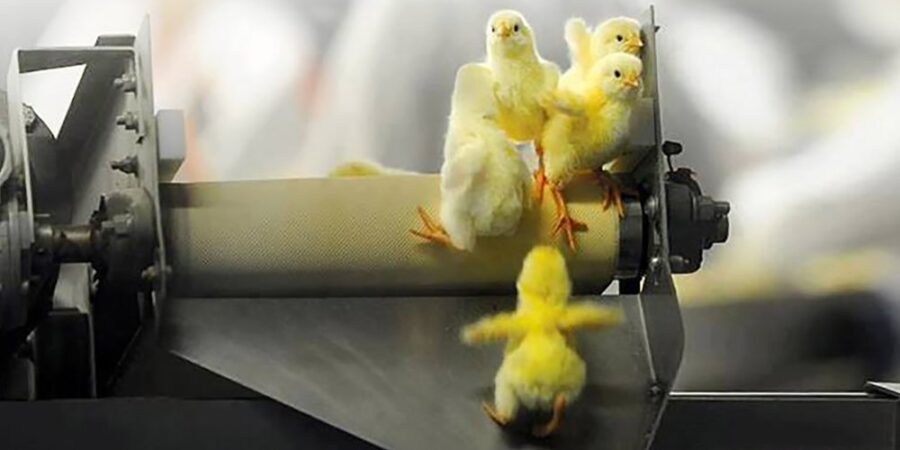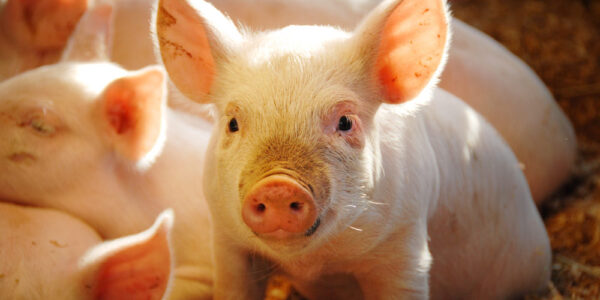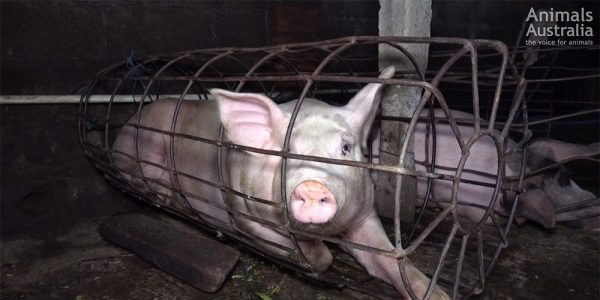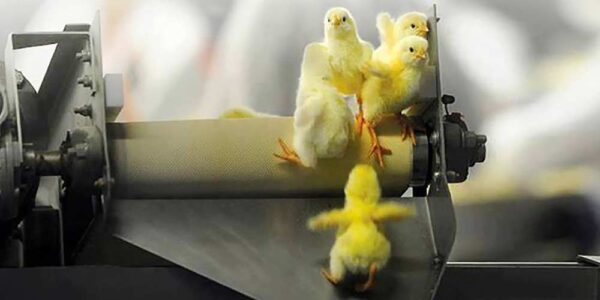Here are 10 ways cages suck for sensitive and social hens.
1. A hen is forced to live in a space the size of an iPad
The space allocated to an individual hen in a cage egg farm is about the size of an iPad. They spend their entire lives with their feet pressed against a hard wire floor, with barely enough room to stretch their wings, and no chance to seek privacy for laying eggs or sleeping.
This image contains content which some may find confronting
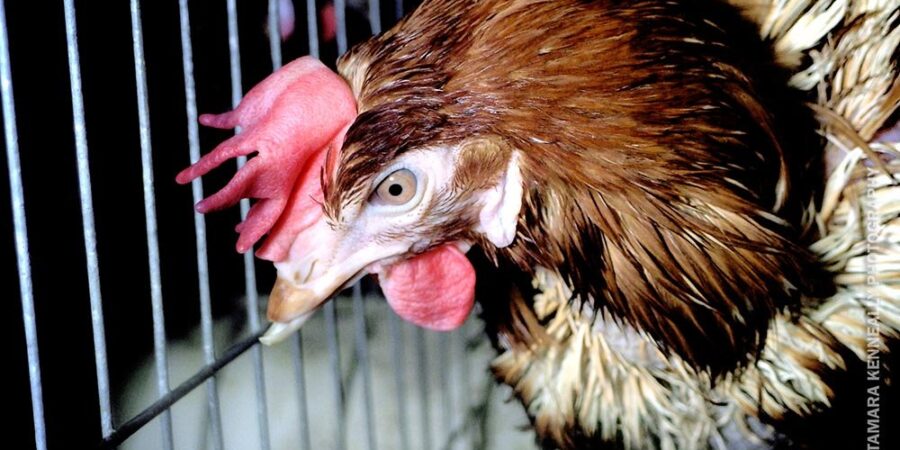
2. They have part of their beaks cut off
When hens are trapped in small cages with several other birds, they become (understandably) frustrated and can take it out on each other. Rather than reducing stress by giving a hen more space, the egg industry cuts part of a newborn chick’s beak off, before she is locked into a cage for life. Despite the fact that a chicken’s beak contains sensitive nerve endings, this painful procedure is done without any pain relief.
This image contains content which some may find confronting
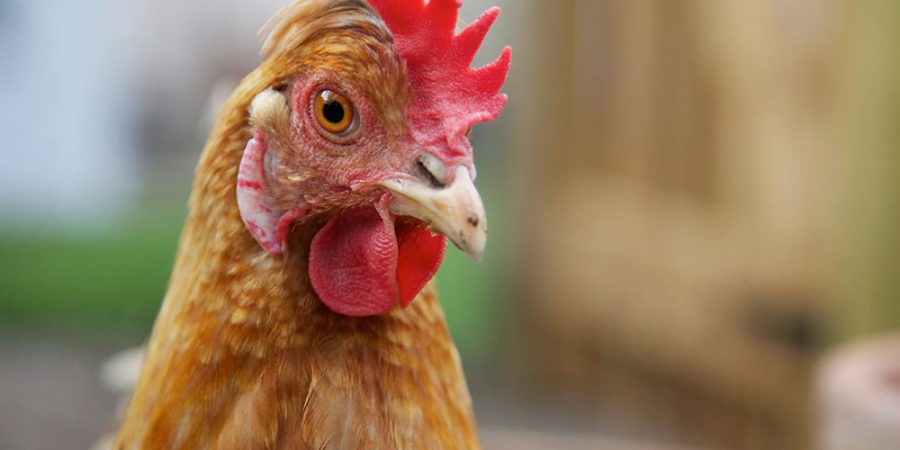
3. Individual care is practically impossible
With so many cages, and so many chickens, it’s practically impossible for cage egg farmers to care for them all. Sick and injured birds may go untreated, and investigators have even found dead birds left to rot under the feet of their cage-mates.
This image contains content which some may find confronting
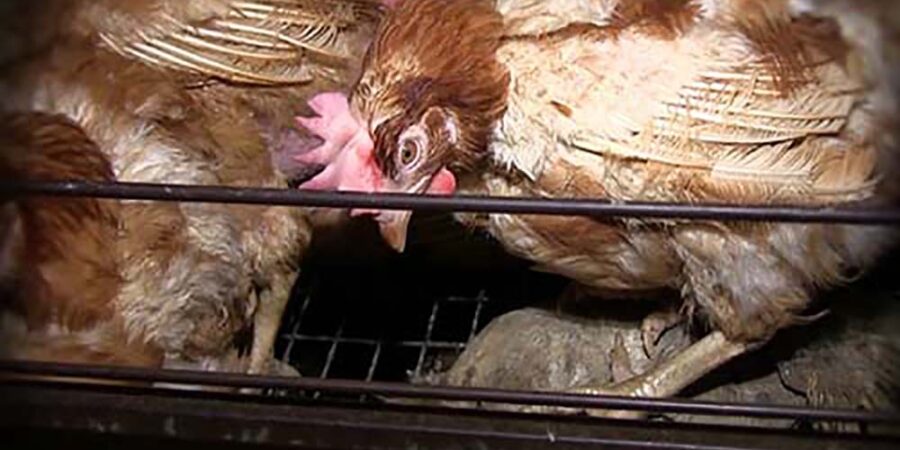
4. Some hens live with broken bones
A lack of exercise, combined with depleted calcium from constant egg-laying, leads to weakened and brittle bones amongst factory farmed hens. And when they’re removed from the battery cage, sadly things don’t get better — many hens sustain injuries and broken bones when pulled out to be trucked to slaughter.
This image contains content which some may find confronting
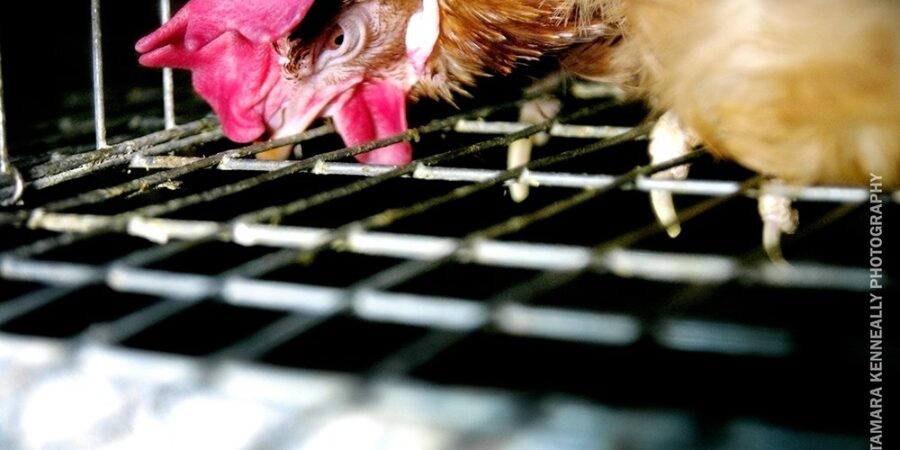
5. Manure pits
The term ‘manure pit’ pretty much speaks for itself. Beneath the tiers of battery cages is a big pit that catches the faeces of the countless stressed out birds above.
A 2014 investigation into a PACE cage egg farm found something moving in the piles and piles of manure … or rather, someone. Watch this 2 minute video for the shocking discovery:
This image contains content which some may find confronting
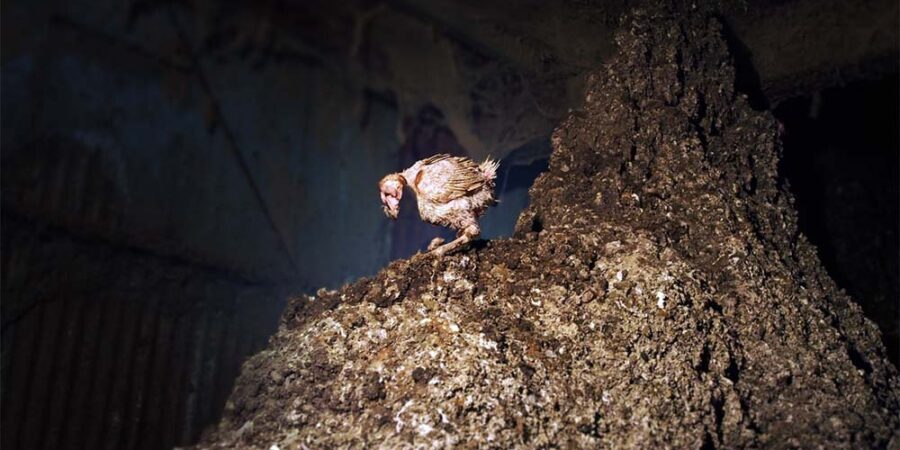
6. Hens in cages don’t get to express their personalities
Hens can be adventurous, shy, social, introverted, mischievous, affectionate and any number of other things. Every hen is a unique individual. But in factory farms, a hen never gets to express her personality. Her only value to farmers is how many eggs she can produce.
If you’re not already convinced, this one minute video is all the proof you’ll need that chickens are SO much more than egg-laying machines …
This image contains content which some may find confronting
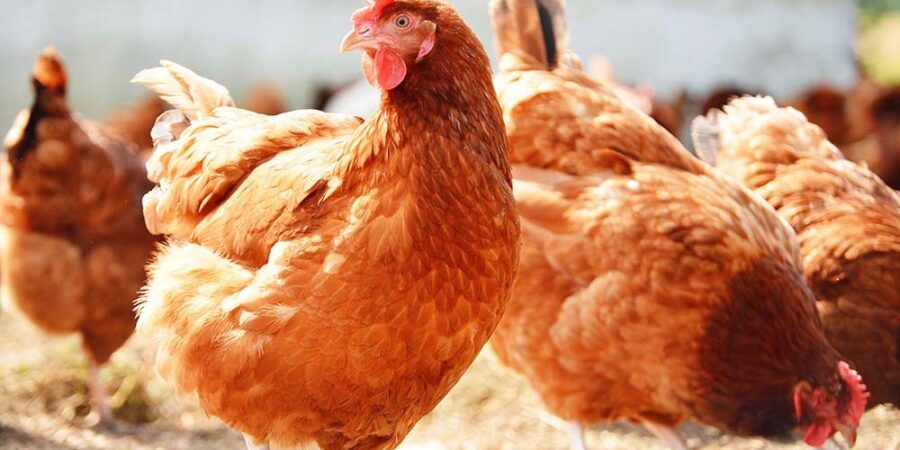
7. They never see sunlight
The first time a hen in a cage egg farm will see the outside world — the world she was meant to live in — will be the last day of her life, as she is trucked to the slaughterhouse. Can you imagine a life without sunshine?
This image contains content which some may find confronting
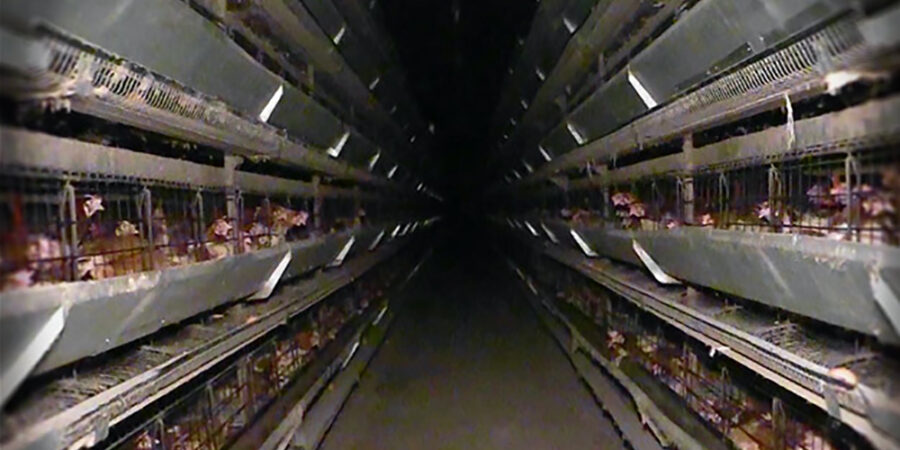
8. They can’t do any of the stuff chickens like to do
Hens in battery cages can’t build nests, forage for food, stretch their wings, dust bathe, play with friends, lay eggs in private, explore, catch some sun … they can’t do any of the things that chickens normally like to do.
This image contains content which some may find confronting
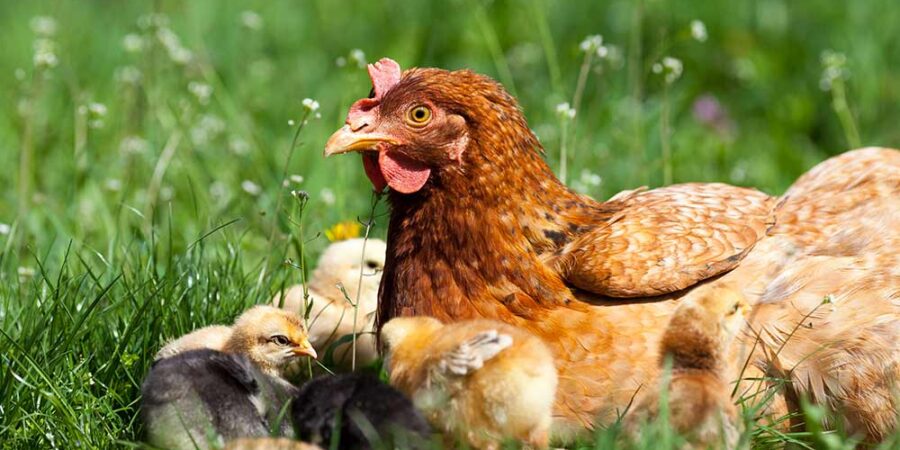
9. Some big companies are going cage-free, but there’s a long way to go…
First we tipped McDonald’s to committing to stop using cage eggs. Then Subway followed. And, in response to public pressure, Hungry Jack’s has now joined them in pledging to remove cage eggs from their restaurants. Three of the fast food industry’s biggest egg users have recognised that cages are cruel (and bad for business). While others are sure to follow, it is demand that drives what businesses do and do not supply. By taking a stand against egg industry cruelty, we can sway demand to animal-friendly options.
This image contains content which some may find confronting
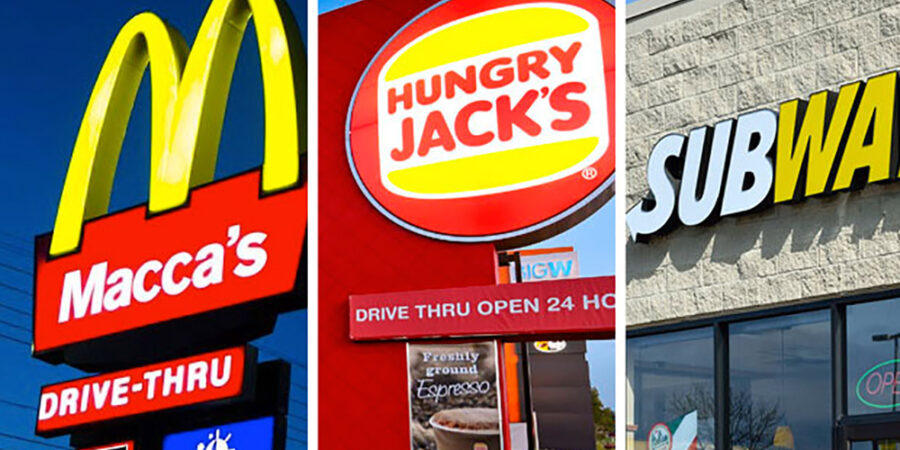
This image contains content which some may find confronting
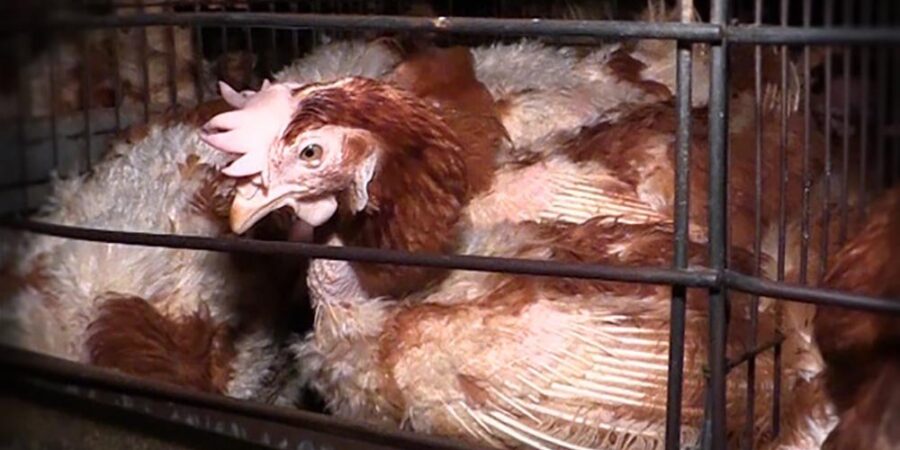
While getting hens out of cages will be a big win, if you want to go the extra step for chickens, here’s 2 more important facts to consider:
Hens don’t live to see their second birthday
Hens can naturally live up to 10 years, but to the egg industry, a hen ceases to have value the day she can’t turn a profit. So from as young as 18 months old, when her egg production slows, she will be packed into a crate and trucked to slaughter. This is true for hens in all commercial egg systems.
This image contains content which some may find confronting
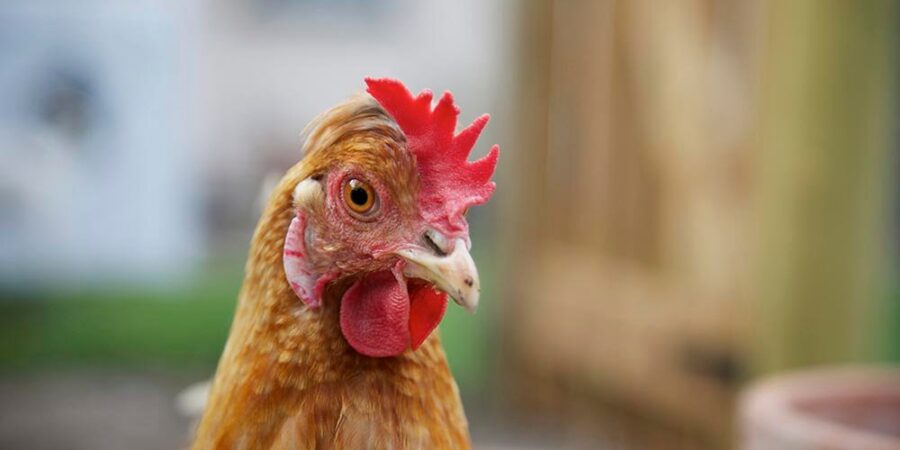
Male chicks are killed
Roosters don’t lay eggs. So the egg industry has no use for them. But when chickens are hatched (to replace the “spent” ones) naturally around half of the chicks will be male. So what does the egg industry do with the boys? Day old male chicks are gassed or thrown into machines to be ground up alive. This is true of all egg farms including free range and organic.
By cutting down on the eggs you eat, or going egg-free, you can join caring people who are standing up for hens and male chicks. Click here for everything you need to know about eggs and tips on egg-free baking.
This image contains content which some may find confronting
